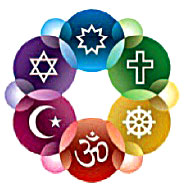 By: Paul P. Jesep*/TRT Columnist—
By: Paul P. Jesep*/TRT Columnist—
Justin Tanis, Managing Director at the Center for Lesbian and Gay Studies in Religion and Ministry, established at the Pacific School of Religion for gender, religion, and sexuality, answered twelve questions submitted by The Rainbow Times after the U.S. Supreme Court’s decision on marriage equality. The answers to the questions deal with marriage equality and religious liberty from a professional opinion and will all be published in a four-part special TRT feature story.
Q. How can religious liberty of persons believing in “traditional” marriage be balanced with proponents of equality?
A. Marriage traditions around the world—and within the Christian church—vary widely. The church only began regularly blessing marriage in the 12th century and has included blessings of same sex couples throughout its history. The “tradition” of marriage as it is now being proclaimed is a fairly recent idea in human history and very Western in orientation. “Traditional” marriage isn’t all that traditional.
The Supreme Court ruling means all couples are now free to accept the rights and responsibilities of marriage, nothing more and nothing less. This has no direct impact on the marriages of those who believe otherwise. People who believe marriage means one man married to one woman in a monogamous marriage for life are free to continue to live that way. But that choice should not prevent others from making different choices they feel are ethically and spiritually right for them. [pullquote]The Bible recognizes a variety of partnerships, including same-sex ones, such as the intimate relationship between Jonathan and David and the profound bond between mother- and daughter-in-law Ruth and Naomi. One book of the Bible, the Song of Songs (the Song of Solomon), is an explicit love poem between a man and a woman who are unmarried lovers.[/pullquote]
Q. What is biblical and social marriage?
A. Marriages in the Bible represent a complex set of interactions, mostly the sale of women by their fathers to other men for the purposes of procreation. Many Biblical marriages include more than two partners, such as the marriages of David, Saul, and Jacob to multiple women. Many included slave marriage, in which a slave owner, such as the patriarch Abraham, had sex with Hagar, a woman that he owned. The woman’s consent was not considered relevant.
The Bible recognizes a variety of partnerships, including same-sex ones, such as the intimate relationship between Jonathan and David and the profound bond between mother- and daughter-in-law Ruth and Naomi. One book of the Bible, the Song of Songs (the Song of Solomon), is an explicit love poem between a man and a woman who are unmarried lovers.
We don’t even know if Jesus was married—the Bible contains no information about this whatsoever.
Legally, marriage has become a contract of rights and responsibilities government grants. It is a social declaration of a personal commitment to a relationship and it is deeply meaningful to many people. Same-gender couples are motivated by the same things that opposite gender couples are. The continuing discrimination people in same-gender relationships face may make it even more vital to have those relationships recognized by the law – one’s partner is informed and participates in decisions if his/her partner is incapacitated.
In my ministry over twenty-five years, I’ve officiated at a large number of weddings, most without marriage licenses. Before same-sex marriages were recognized by law, couples still chose to get married. Why? Because it was important and sacred to them to make a commitment to one another in the eyes of God and before loved ones. There was something incredibly special about those services because they were purely about love and a spiritual connection. Legal rights and responsibilities conveyed by a license are different than the spiritual value of the ceremony and the commitment it symbolizes.
Q. Has marriage been re-defined by the U.S. Supreme Court?
A. No. Marriage has meant many different things to many cultures and times, including the right of two people of the same gender to make a commitment. This ruling simply makes space for people of diverse views to make choices for their own lives.
* Paul is a corporate chaplain, seminary trained priest, and attorney in greater Albany, NY. Reach him through www.CorporateChaplaincy.biz.







